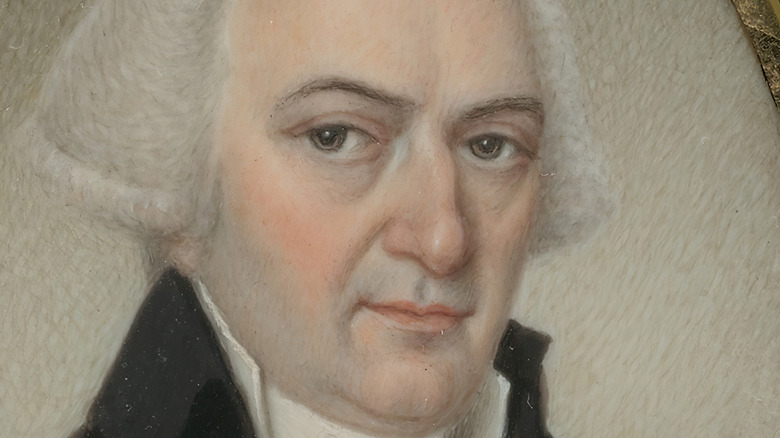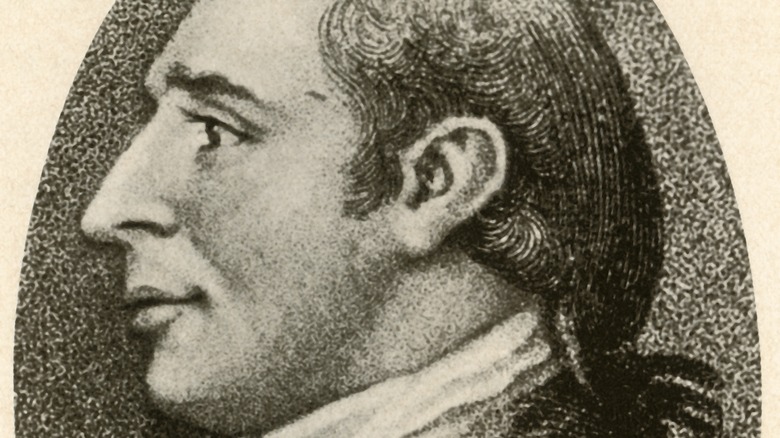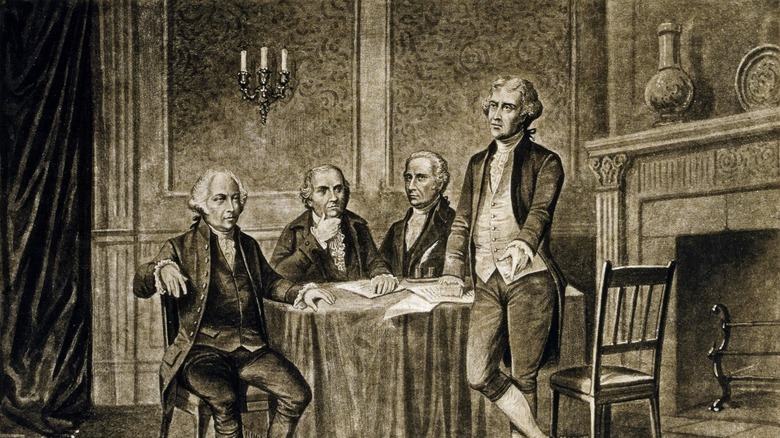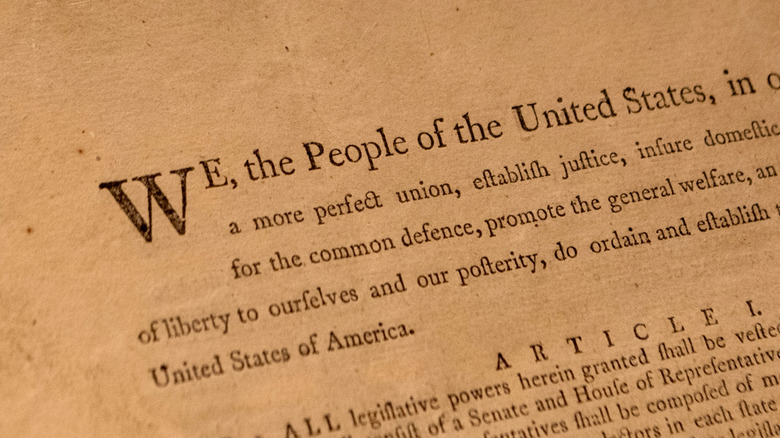The Phrase 'We The People' Came From This Forgotten Founding Father
There are lots of famous Founding Fathers who receive deserved acclaim for the work they did to shape the United States of America. Just think of James Madison, Thomas Jefferson, or John Adams — even Alexander Hamilton had a Tony-winning musical made about him.
But there are plenty of other politicians who made real contributions at the Constitutional Convention, yet aren't as well remembered. Gouverneur Morris is one such founding father. Haven't heard of him? You're not alone: This politician and lawyer from Pennsylvania isn't necessarily well covered in most U.S. history textbooks. But that doesn't make his work any less important. Morris was integral to the creation of the Constitution as we know it today. Sometimes called the Penman of the Constitution, Morris was the editor and shaper of the Constitution from its rough draft to its final, polished form, according to the Constitution Center.
Among the lines he revised? The most well-known of all: that starting preamble, "We the People of the United States."
Who was Gouverneur Morris?
A New York native, Gouverneur Morris was a pretty smart cookie (via Yahoo! News). He graduated college at only 16 years old, and later became a lawyer and constitutional delegate. Morris's life wasn't necessarily easy; he faced multiple health problems during his life, including a deformed right arm due to a childhood accident (via Penn Today). He used a peg leg after his left leg was irreparably damaged and then amputated after a run-in with a carriage (via the Constitution Center). Later in his life, Morris wrote that he also experienced gout.
Morris had several different jobs in his life, including lawyer, a one-term senator, an ambassador to France, and even a job in finance in which he helped to design the American coin system (via Britannica). But perhaps Morris' most important job was as a delegate to the Constitutional Convention of 1787. Morris, who was in his mid-30s at the time, represented Pennsylvania at the convention, according to History.
Morris' political beliefs
Morris was a strong Federalist, meaning he wanted to create a document that supported a strong Federal government (via Constitution Center). He had other staunch political beliefs, too; for instance, Morris was known for his anti-slavery position, according to Yahoo, and believed women should have greater rights (via Penn Today). He also hated the so-called Three-Fifths Compromise, which counted slaves as three-fifths of a person for the purposes of governmental representation. Of the compromise, Morris reportedly said, "Upon what principle is it that the slaves shall be computed in the representation? Are they men? Then make them citizens, and let them vote. Are they property? Why, then, is no other property included?" according to the Constitution Center.
However, though Morris' defense of slaves was certainly praiseworthy, he had other ideals which were seemingly contradictory. For example, Morris didn't trust the average man's ability to rule himself, and believed that government — or at the very least, the senate — should be composed of elite individuals, like aristocrats, whose higher education levels would make them more suited to political decisions, the Constitution Center notes.
Morris' role at the Convention
The Constitutional Convention was called when various people realized there were flaws with the existing government papers, the Articles of Confederation (via the United States House of Representatives). This document, which originally created the U.S. federal government, gave too much power to the states and was too vague on how the federal government could enforce things like tax collection. As a result, the 1787 Constitutional Convention was called so that a new document, the Constitution, could be created.
Though James Madison is often called the Father of the Constitution (via the Library of Congress), Morris deserves significant credit for his work shaping the document. After lobbying for his beliefs at the Convention — he gave a startling 173 speeches, the most of anyone in attendance (via Yahoo) — he was given the rough draft of the Constitution to edit (via Constitution Center).
Technically, Morris didn't come up with the phrase "We the People." But the original phrasing, "We the People of the States of New-Hampshire, Massachusetts, Rhode-Island..." listing all the states, was a bit wordy (via Yahoo). Morris' new, snappier version: "We the People of the United States." It was just one of many strong edits that led James Madison, years later, to say of Morris, "The finish given to the style and arrangement of the Constitution fairly belongs to the pen of Mr. Morris ... A better choice could not have been made, as the performance of the task proved" (via the Constitution Center). No small praise indeed!



